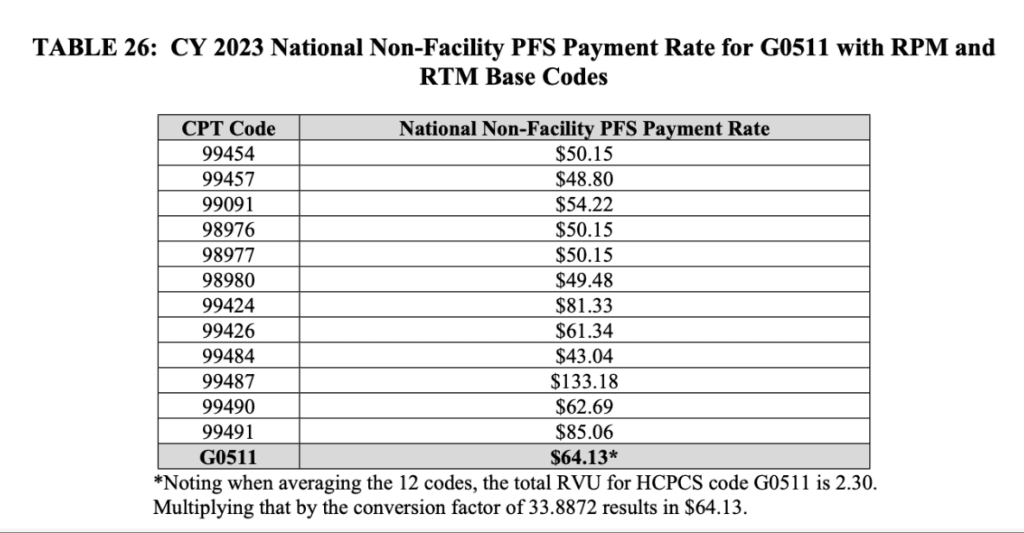Managing patients with chronic conditions is a cornerstone of modern healthcare. Chronic Care Management (CCM) services, in particular, have become essential in providing the ongoing support these patients need. Among the codes that define these services, CPT code 99491 stands out for its pivotal role in improving patient outcomes through a personalized and structured approach to care.
Let’s explore how CPT code 99491 impacts CCM and how it benefits patients and healthcare providers.
What is CPT Code 99491?
CPT code 99491 was introduced in the CY 2019 Physician Fee Schedule (PFS) final rule. As specified, it covers “30 minutes or more of CCM furnished by a physician or other qualified health care professional”. This service is not just a standard care management offering; it involves direct involvement from the physician or a qualified healthcare professional, which ensures a more tailored approach to chronic care management.
The inclusion of CPT code 99491 within the HCPCS code G0511 for billing purposes reflects its importance. “The payment for HCPCS code G0511 is set at the average of the national non-facility PFS payment rates for CPT codes 99490, 99487, 99484, and 99491 and is updated annually based on the PFS amounts.” . This payment structure incentivizes healthcare providers to engage more directly with patients who have chronic conditions, ensuring high-quality, ongoing care.
The Importance of Personalized Care in CCM
One of the key distinctions of CPT code 99491 is that it includes only the time spent personally by the billing practitioner. Unlike other CCM codes, such as 99490, which count time spent by clinical staff towards meeting the service time requirement, CPT code 99491 emphasizes direct practitioner involvement. This distinction ensures that patients receive attention directly from their physicians, fostering a stronger patient-provider relationship and enhancing the continuity of care.
The comprehensive care management provided under this code involves multiple elements, such as “structured recording of patient information using certified electronic health record technology (EHR),” “24/7 access to physicians,” and “comprehensive care plan for all health issues with a particular focus on the chronic conditions being managed.” By focusing on these elements, CPT code 99491 addresses the unique needs of patients with two or more chronic conditions, ensuring that they receive consistent, individualized care.
How CPT Code 99491 Contributes to Better Patient Outcomes
The structured approach of CPT code 99491 offers several benefits to both patients and healthcare providers. For patients, the code ensures that they receive a higher level of care coordination, minimizing the risk of complications and improving overall health outcomes.
As noted in the CY 2019 PFS rule, the service targets patients with “chronic conditions expected to last at least 12 months or until the death of the patient” and requires the management of conditions that place patients “at significant risk of death, acute exacerbation/decompensation, or functional decline.” . This emphasis on high-risk conditions ensures that care is delivered to those who need it most.
How is Code 99491 relevant to healthcare providers? For healthcare providers, CPT code 99491 allows them to bill for the time they spend directly managing patients, encouraging more in-depth interactions. Since this code requires direct involvement from physicians or qualified healthcare professionals, it’s especially useful in complex cases where patients need more attention. Additionally, its inclusion in programs like the Shared Savings Program shows its value in delivering comprehensive care, particularly when assigning patients to Accountable Care Organizations (ACOs).
CPT Code 99491 and the Future of CCM
As healthcare evolves, the role of CPT code 99491 in chronic care management continues to grow. Starting January 1, 2021, Rural Health Clinics (RHCs) and Federally Qualified Health Centers (FQHCs) can bill CPT code 99491 as part of their care management services using HCPCS code G0511 . This change further expands access to care for patients in rural and underserved areas, ensuring that they benefit from the same high-quality chronic care management available in more urban settings.
This evolution reflects a broader commitment to supporting patients with chronic conditions, improving health outcomes through consistent and personalized care. By emphasizing physician involvement, structured care plans, and a focus on high-risk patients, CPT code 99491 stands out as a key tool in advancing chronic care management and making a tangible difference in patient lives.
Costs of Providing Chronic Care Management Services with CPT 99491
Providing CCM services, like those billed under CPT code 99491, involves various costs that healthcare providers need to consider. According to the Federal Register, in 2024, the reimbursement rate for CPT 99491 is $85.06 for each 30-minute session of care management directly delivered by a physician or qualified healthcare professional. However, offering these services comes with additional expenses.
Table Source: PFS Final Rule Page 70

For example, a clinic may need to invest in electronic health record (EHR) systems to track patient information and time spent on care. The cost of using these systems, combined with the provider’s time and any support staff needed, adds to the overall expenses. The time requirement is crucial here—CPT 99491 specifically requires that a physician spends the time directly with the patient, meaning that time spent by clinical staff does not count toward the billing.
To illustrate, if a physician spends 60 minutes with a patient, the total reimbursement might be around $143.06 ($85.06 for the first 30 minutes using CPT 99491 and approximately $58 for an additional 30 minutes using CPT 99437). But the clinic still needs to account for the cost of maintaining the EHR system, staff support, and other overhead costs, like rent or utilities.
Balancing these costs with the reimbursement is key for clinics to offer high-quality care while ensuring their financial sustainability. By keeping track of both the time spent and the resources used, clinics can make sure that CCM services are both effective for patients and economically viable.
Takeaways
CPT code 99491 expands the scope and effectiveness of Chronic Care Management, focusing on delivering personalized care through direct physician engagement. Its role in managing high-risk patients with multiple chronic conditions makes it essential for improving health outcomes. As healthcare providers continue to leverage CPT code 99491, patients can expect more coordinated and compassionate care that addresses their unique needs. For further details on CCM and related regulations, refer to the CMS Care Management web pages.
By integrating CPT code 99491 into care management strategies, healthcare providers can help transform the lives of patients living with chronic conditions, offering them better care and a brighter future.
For more information about Chronic Care Management services and how to effectively implement CPT Code 99491, contact DrKumo. Our innovative remote patient monitoring solutions help healthcare providers enhance care and improve patient outcomes.
Disclaimer: The information provided regarding CPT Codes is for general informational purposes only and should not be considered legal, medical, or billing advice. For specific guidance on CPT Codes, reimbursement, and compliance with billing practices, please consult with a qualified healthcare professional or billing expert.








